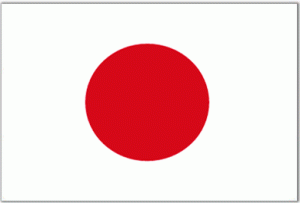 Japanese Prime Minister Abe Shinto is expected to announce his nation’s intention to enter the Trans Pacific Partnership negotiations at 6pm on Friday. To join the negotiations, Japan will need to win the consent of Australia, New Zealand and the United States (the other nations have already indicated their approval). Japan has generally strong levels of intellectual property protection, and was the first nation to ratify ACTA, so it has been suggested that its entrance might be helpful for American negotiators pushing for TRIPS-Plus intellectual property provisions in the agreement. As noted by USTR, intellectual property is one of the “most challenging issues that remain.”
Japanese Prime Minister Abe Shinto is expected to announce his nation’s intention to enter the Trans Pacific Partnership negotiations at 6pm on Friday. To join the negotiations, Japan will need to win the consent of Australia, New Zealand and the United States (the other nations have already indicated their approval). Japan has generally strong levels of intellectual property protection, and was the first nation to ratify ACTA, so it has been suggested that its entrance might be helpful for American negotiators pushing for TRIPS-Plus intellectual property provisions in the agreement. As noted by USTR, intellectual property is one of the “most challenging issues that remain.”
However, American trade officials are on the record seeking specific changes to the Japanese intellectual property system. The April 2012 National Trade Estimate Report on Foreign Trade Barriers contains the following excerpt regarding IP in Japan:
The U.S. Government also has urged Japan to continue to reduce piracy rates, including adopting methods to protect against piracy in the digital environment. Police and prosecutors lack ex officio authority to prosecute IPR crimes on their own initiative, without a rights holder’s complaint. In addition, the U.S. Government has pressed for improvements to Japan’s Internet Service Provider liability law to provide adequate protection for rights holder’s works on the Internet. In addition, while Japan took steps to revise its Customs Law and Unfair Competition Law in 2011, it should continue to strengthen its laws to provide effective criminal and civil remedies against unauthorized circumvention of technological protection measures used by rights holders to protect their works, trafficking in tools used to circumvent them, and providing circumvention services.
In other areas, although Japan provides a 70 year term of protection for cinematographic works, it only provides a 50 year term for all other works protected by copyright and related rights. The U.S. Government continues to urge Japan to extend the term of protection for all subject matter of copyright and related rights in line with emerging international trends. In addition, amendments to the Copyright Law came into effect in 2010 which, among other things, clarified that the statutory private use exception does not apply in cases where a downloaded musical work or a motion picture is knowingly obtained from an infringing source. The U.S. Government continues to urge the Japanese government to expand this limitation on the private use exception to cover all works protected by copyright and related rights.
The earlier leaked U.S. proposals for intellectual property protection – if they remain in the final text – would require Japan to implement some of these requests desired by USTR. For instance, Article 15.5(g) would require enforcement officials to have ex officio powers for judicial authorities in matters of criminal enforcement. Article 4.5 would require the term of protection for most copyrighted works to increase to life-of-the-author plus 70 years. The term would be longer for corporate and collective works.




